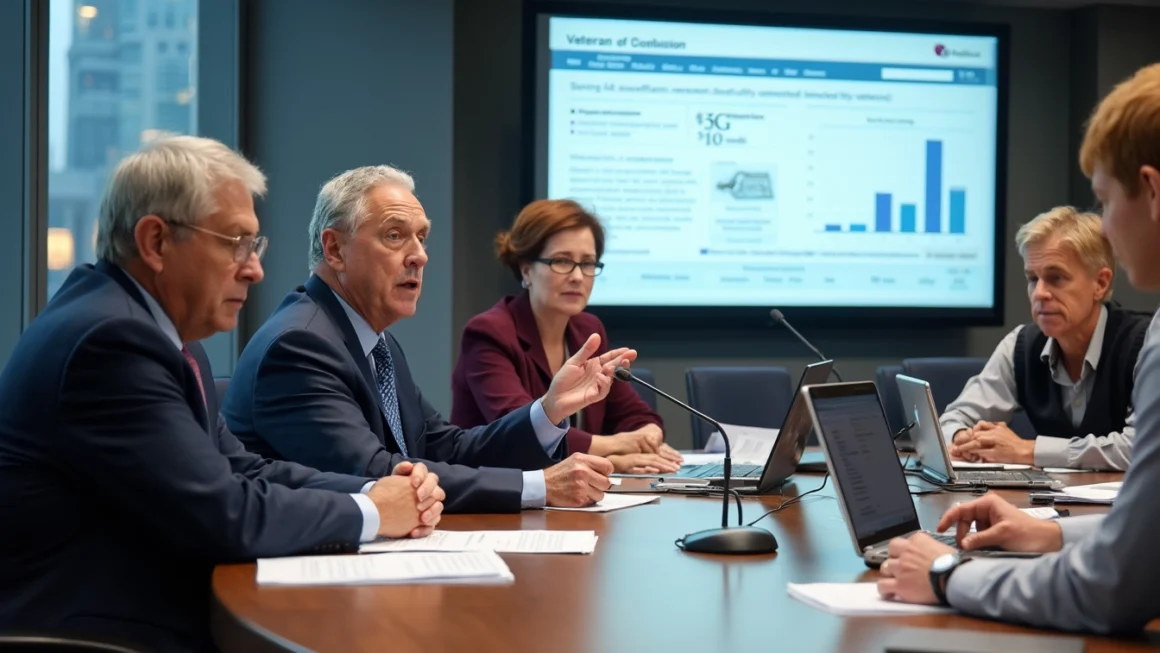Veterans Legislative Conference Addresses Critical Issues
Table of Contents
The recent Veterans of Foreign Wars (VFW) Legislative Conference brought to light several pressing matters affecting veterans and their families. Among the top priorities discussed were caretaker benefits and the Department of Veterans Affairs (VA) budget, highlighting the ongoing commitment to support those who have served our nation.
Caretaker Benefits: A Crucial Support System
One of the main focuses of the conference was the importance of caretaker benefits. These benefits play a vital role in supporting veterans who require assistance with daily activities due to service-related injuries or illnesses. The VFW emphasized the need to expand and improve these benefits to ensure that veterans receive the care they deserve.
Caretaker benefits typically include:
- Financial stipends for family members providing care
- Access to health insurance
- Respite care services
- Mental health support for caregivers
The conference attendees stressed the importance of recognizing the sacrifices made by family members who often become full-time caregivers. Enhancing these benefits not only supports veterans but also acknowledges the critical role that caregivers play in the recovery and well-being of our nation’s heroes.
VA Budget: Ensuring Adequate Funding for Veteran Services
Another key topic of discussion was the VA budget. Adequate funding is crucial for the VA to provide comprehensive services to veterans, including healthcare, education, and housing assistance. The conference highlighted the need for a robust budget to address the evolving needs of veterans, especially in light of emerging health concerns and the ongoing challenges faced by veterans of different eras.
Key areas of focus for the VA budget include:
- Modernizing VA facilities and technology
- Expanding mental health services
- Improving access to care in rural areas
- Addressing the backlog of disability claims
Attendees emphasized the importance of ensuring that the VA has the resources necessary to fulfill its mission of serving veterans effectively. This includes not only maintaining current services but also investing in future capabilities to meet the changing needs of the veteran population.
Legislative Priorities and Advocacy Efforts
The conference served as a platform for veterans and advocates to voice their concerns and priorities to lawmakers. Representatives from various veteran organizations presented their legislative agendas, focusing on issues such as:
- Expanding eligibility for VA healthcare
- Improving transition services for service members returning to civilian life
- Addressing veteran homelessness and unemployment
- Enhancing education benefits and vocational training programs
These legislative priorities reflect the ongoing commitment to ensuring that veterans receive the support and resources they need to thrive after their military service. The conference provided a valuable opportunity for veterans to engage directly with policymakers and advocate for meaningful changes in veteran-related legislation.
The Role of Technology in Veteran Services
An important aspect of improving veteran services discussed at the conference was the integration of technology. As the world becomes increasingly digital, the VA and veteran support organizations are looking at innovative ways to enhance service delivery. Automation tools can play a significant role in streamlining processes, reducing wait times, and improving overall efficiency in veteran services.
Some technological advancements being considered include:
- Telemedicine platforms for remote healthcare access
- AI-powered systems for processing claims and inquiries
- Mobile apps for easy access to VA resources and information
- Virtual reality therapy for PTSD and other mental health treatments
Community Support and Engagement
The conference also highlighted the importance of community involvement in supporting veterans. Local communities play a crucial role in providing a support network for veterans and their families. Discussions centered around ways to strengthen these community ties and create more opportunities for veteran engagement.
Initiatives discussed included:
- Creating veteran-friendly employment programs
- Establishing mentorship opportunities for transitioning service members
- Developing community-based mental health support groups
- Organizing volunteer programs that connect veterans with their local communities
Looking Ahead: Future Challenges and Opportunities
As the conference concluded, attendees left with a renewed sense of purpose and a clear vision of the challenges ahead. The discussions and proposals put forward during the event will shape the advocacy efforts and policy initiatives in the coming months and years.
Key takeaways for the future include:
- The need for continued bipartisan support for veteran issues
- The importance of adapting services to meet the needs of younger veterans
- The potential for public-private partnerships to enhance veteran support
- The critical role of ongoing research into veteran health issues
The VFW Legislative Conference serves as a vital forum for addressing the needs of veterans and their families. By focusing on critical issues such as caretaker benefits and the VA budget, the conference participants are working to ensure that our nation’s commitment to its veterans remains strong and effective. As these discussions translate into action, the hope is that veterans will continue to receive the support and recognition they have earned through their service and sacrifice.




